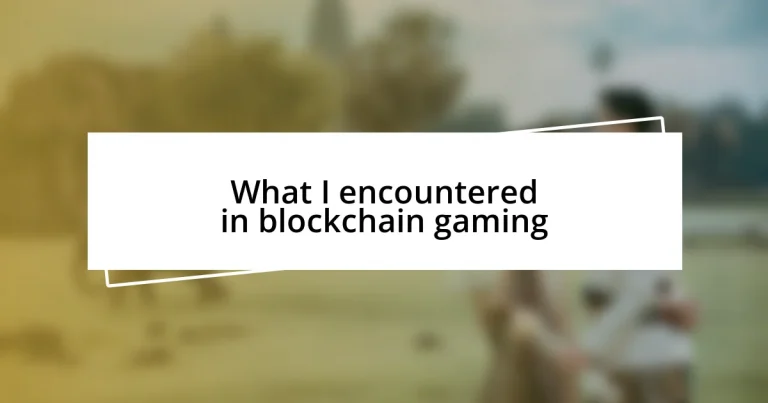Key takeaways:
- Blockchain technology enables true ownership of in-game assets, allowing players to buy, sell, and trade items like real-world collectibles.
- The play-to-earn model and enhanced security foster a new economic landscape in gaming, providing players with real income opportunities and transaction safety.
- Future trends include interoperability between games, integration of advanced technologies like AI and VR, and community-driven content creation, enhancing player engagement and customization.
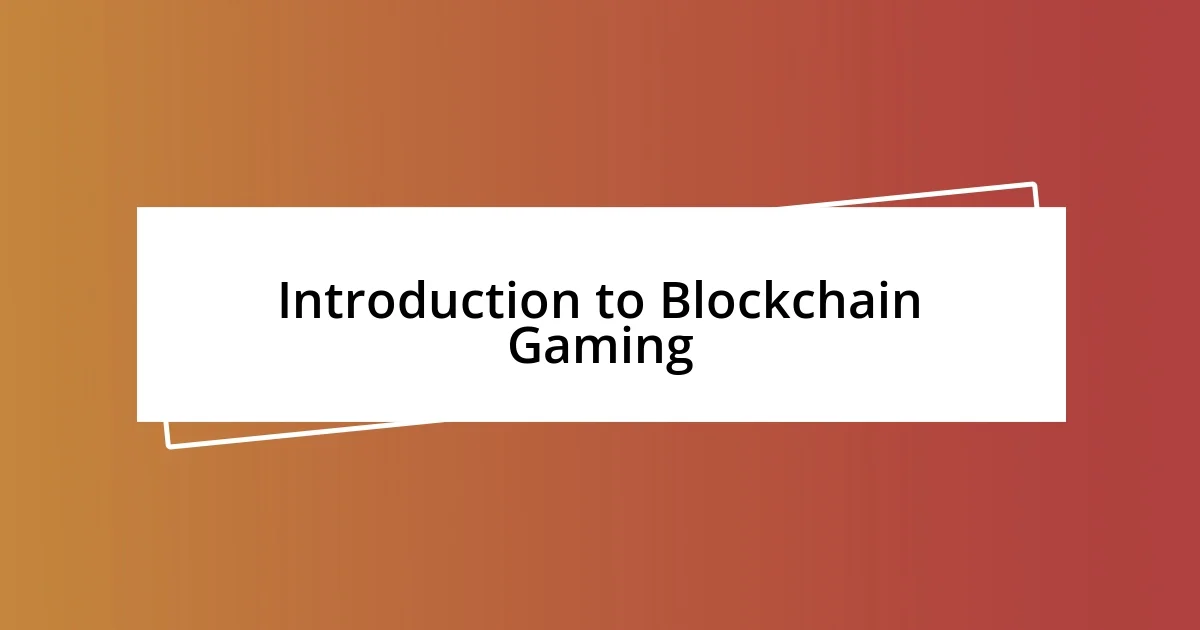
Introduction to Blockchain Gaming
When I first dipped my toes into blockchain gaming, I was curious but skeptical. The idea of intertwining digital ownership with gaming felt revolutionary. I remember thinking, “Can this really change the way we play and own games?”
As I navigated through various platforms, it struck me how blockchain technology empowers players by granting them true ownership of in-game assets. No longer are the digital items just a part of a server’s data—players can buy, sell, and trade these assets like real-world collectibles. It felt exhilarating to hold tangible value in a digital universe.
Reflecting on my experiences, I can’t help but be fascinated by the potential this technology has to disrupt traditional gaming. Could we witness a future where gamers contribute to a game’s economy, shaping its direction? The possibilities are thrilling, and this new frontier in gaming seems endless.
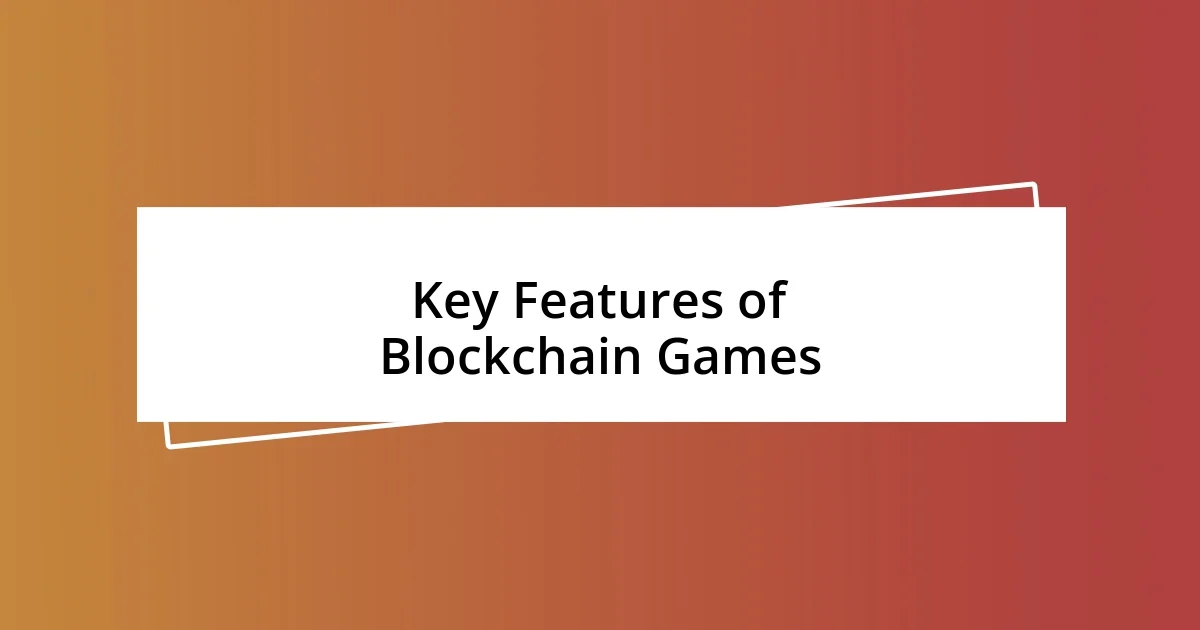
Key Features of Blockchain Games
When exploring blockchain games, a key feature that always stands out to me is transparency. Every transaction is recorded on the blockchain, and this creates a trust factor that’s often missing in traditional gaming. I recall a moment when I completed a trade for a rare weapon in a game. The real-time verification of that trade gave me an unmatched sense of security and legitimacy.
Another defining aspect is the play-to-earn model. Unlike conventional games, where time spent often translates to nothing more than in-game rewards, I’ve seen players generate actual income by participating in blockchain games. I remember hearing from a friend who earned enough from in-game earnings to cover his monthly expenses. It showcased a new path for gamers and left me pondering the true impact of gaming on livelihoods.
Lastly, player governance is something I find incredibly exciting. Many blockchain games allow players to have a direct say in game development and updates. I was amazed when I voted on a game feature once—empowering players like me to shape the future of games we love. Such involvement makes each player feel like a crucial part of the community, not just another statistic.
| Feature | Description |
|---|---|
| Transparency | Trust and security through public transaction records. |
| Play-to-Earn Model | Players can earn real income through in-game activities. |
| Player Governance | Players have a say in game development and decisions. |
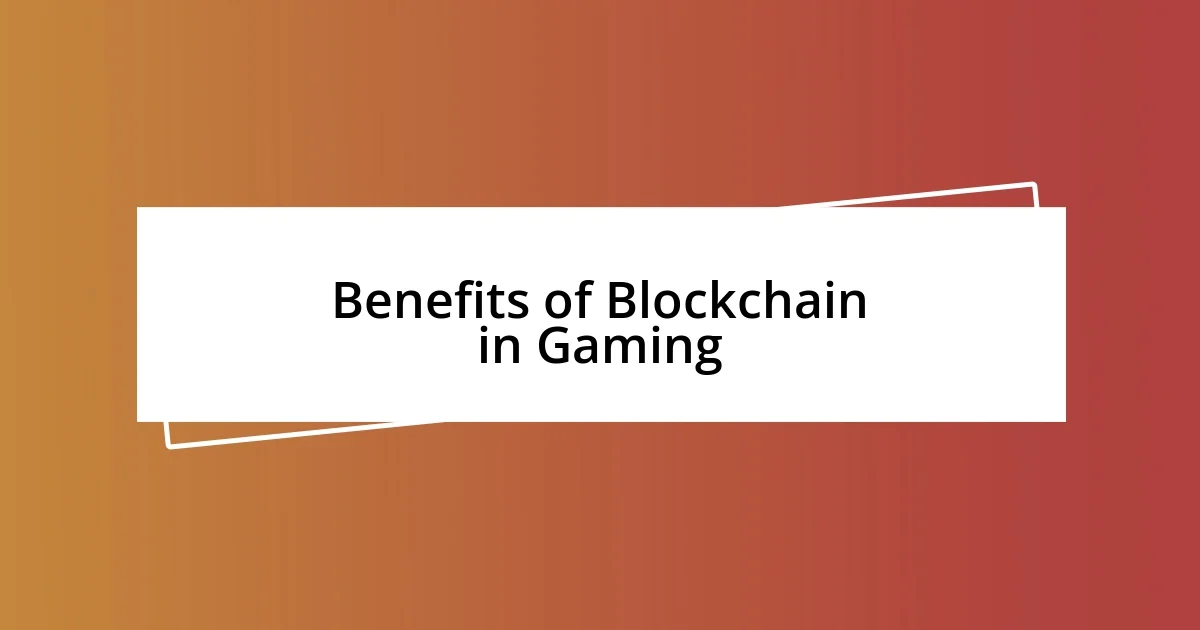
Benefits of Blockchain in Gaming
Blockchain in gaming has brought several unique benefits that genuinely enhance the player experience. I’ve seen firsthand how the increased safety of transactions fosters a sense of confidence in my gameplay. For instance, I remember acquiring a limited edition skin through a marketplace where the blockchain confirmed its authenticity and ownership. It felt different—almost like holding a precious artifact—knowing that I truly owned that item, independent of any game’s servers.
Here are some key benefits I’ve encountered:
- True Ownership: Players genuinely own their in-game assets, allowing them to trade, sell, or transfer items as they choose.
- Enhanced Security: Blockchain’s encryption and decentralized nature provide an additional layer of protection against hacks and fraud.
- Interoperability: Many blockchain games allow players to use their assets across different games, creating a broader ecosystem of engagement and investment.
- Community Engagement: Players have the power to influence development decisions, fostering a more invested and interactive community experience.
- Market Opportunities: The play-to-earn model can transform gaming from a leisurely activity into a potential source of income, making it more appealing to a broader audience.
Every time I experience these benefits, I can’t help but feel a surge of excitement about the future of gaming. Each game I enter feels less like a product and more like a community-driven world I have a stake in. That’s a powerful shift, and it deepens my connection to the games I love.
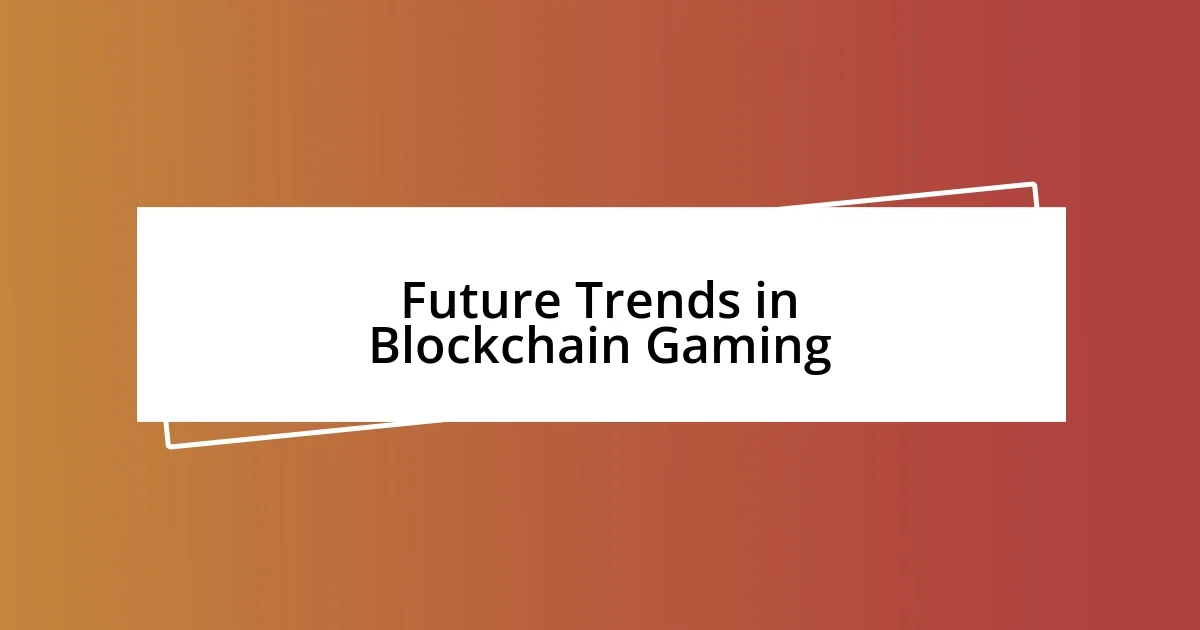
Future Trends in Blockchain Gaming
As I look toward the future of blockchain gaming, I can’t help but feel a wave of excitement about the growth of decentralized gaming ecosystems. Imagine a world where gamers seamlessly navigate between different universes, carrying their hard-earned assets and identities with them. I’ve often wondered, what if our achievements in one game could enhance our adventures in another? This concept of interoperability could transform our gaming experiences in ways that were previously unimaginable.
Developers are also exploring the integration of advanced technologies like artificial intelligence and virtual reality within blockchain games. I remember my first encounter with VR; the immersion was so deep, it felt like stepping into another dimension. Now, envisioning AI that personalizes gameplay based on my actions, tastes, or even emotional responses is thrilling. I imagine AI-driven characters that evolve alongside me, creating a tailored gaming environment that feels unique to each player.
Another trend I find particularly intriguing is the rise of community-driven content creation. The idea that players themselves might develop new levels, quests, or even entirely new games as part of the ecosystem is empowering. I’ve always enjoyed the creativity that gaming inspires, and now the prospect of being able to directly contribute to a game I cherish feels extraordinarily rewarding. Could we be on the brink of a collaborative gaming revolution where every player has the opportunity to shape their digital worlds? I believe this potential will only enhance our passion for gaming and deepen our connections to the communities we build.












